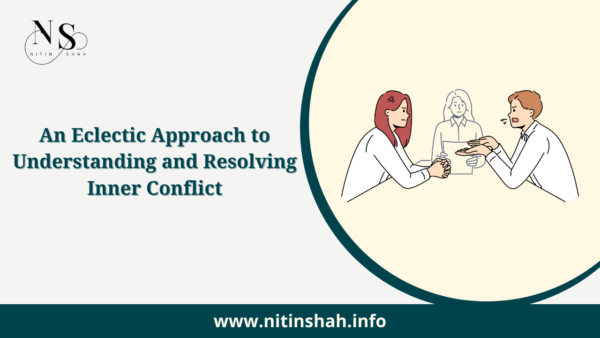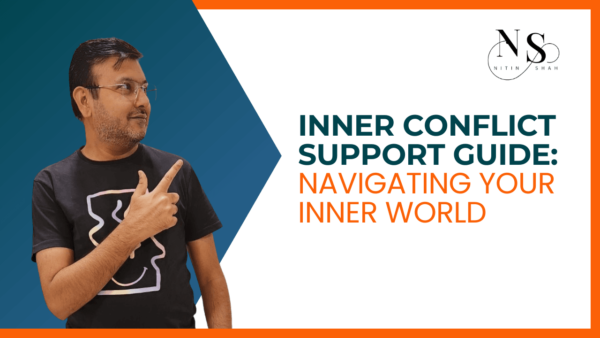The journey from struggle to strength is a tapestry woven from threads of resilience, determination, and the courage to seek guidance when the path becomes too winding. Eating challenges, a labyrinth that many encounter yet few speak of, can overshadow the narrative of one’s life story. But this is not a solo journey. In extending a hand to those entangled in the vines of dietary difficulties, we can illuminate the pathways leading from shadows into light. Cognitive Hypnotic Psychotherapy (CHP) is a beacon in this journey, offering techniques that reshape the relationship with food from one of conflict to one of harmony.
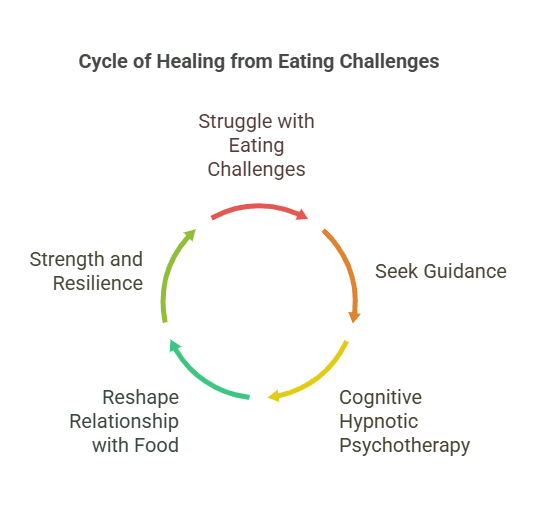
Unveiling the Map: Techniques of Cognitive Hypnotic Psychotherapy
Mindful Eating Awareness:
Application: This technique brings one’s full attention to the present meal, creating an experience that is both enriching and enlightening.
Benefit: Helps in recognizing hunger cues, reducing overeating, and transforming mealtime into a practice of nourishment rather than a battleground.
Cognitive Restructuring:
Application: Involves reorienting negative thoughts and beliefs about food and self-image to reconstruct a positive and rational outlook.
Benefit: Empowers individuals to forge a peace treaty with food, rebuilding their narrative with more supportive and nurturing storylines.
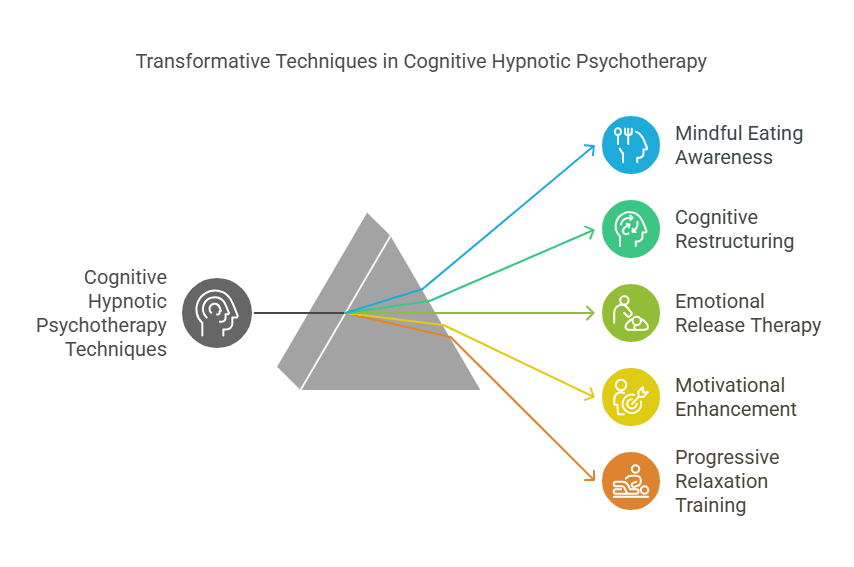
Emotional Release Therapy:
Application: This aspect of CHP addresses emotional blockages that often underpin disordered eating, helping to identify and release them in a safe therapeutic environment.
Benefit: By liberating one from undercurrents of emotional distress, a balanced relationship with food can emerge, fostering a more robust emotional reservoir.
Motivational Enhancement:
Application: Tailored suggestions and affirmations are used to fortify one’s drive towards healthier eating practices.
Benefit: Strengthens resolve and commitment, anchoring the journey in positivity and progress.
Progressive Relaxation Training:
Application: Techniques that teach how to relax the body systematically, reducing the physiological impact of stress and anxiety.
Benefit: As tension is eased, the impulse for stress-related eating diminishes, leading to more intentional and controlled eating habits.
Sharing the Voyage: Encouraging Others to Seek Help
In every proclamation of success over eating challenges lies a potent invitation for others to take the helm of their destinies. Here are ways to inspire those still navigating rough seas:
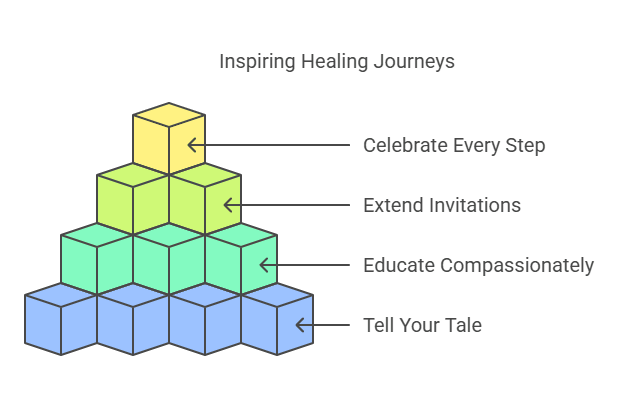
Tell Your Tale:
Share your journey candidly, highlighting how therapy, especially Cognitive Hypnotic Psychotherapy CHP, served as your guiding star. Personal stories resonate deeply and can illuminate the path for others.
Educate Compassionately:
Offer insights into how CHP works, de-mystifying the process and making it more approachable. Understanding breeds comfort, and comfort paves the way for action.
Extend Invitations, Not Injunctions:
Gently encourage others to explore therapy as a choice, presenting it as an open door rather than an imperative, allowing them to approach it in their time.
Celebrate Every Step:
Recognize and honor even the smallest strides others take toward finding help, reinforcing that each move, no matter how minute, is a victory in its own right.
Epilogue: A Shared Journey Toward Shared Strength
Eating challenges, a shared enemy in the odyssey of wellness, can be powerful connective tissue, binding us in understanding. By advocating for therapeutic intervention as a conduit from struggle to strength, we create a chorus of encouragement. This is not only a call to rise above the challenges but a collective embrace of compassion, hope, and the unwavering belief in the transformative power within us all.


